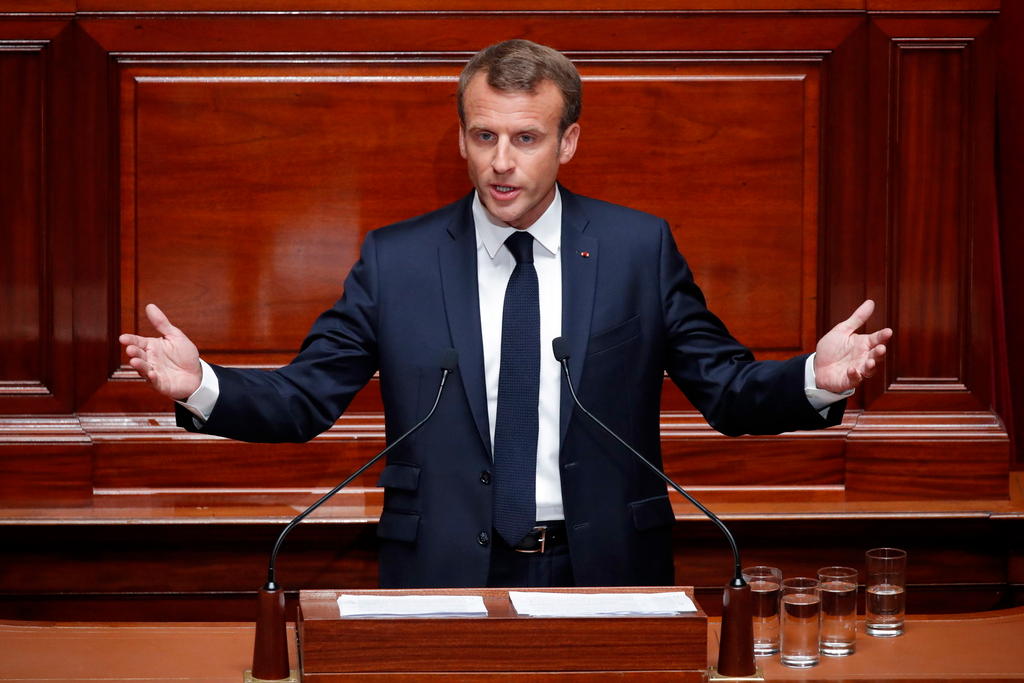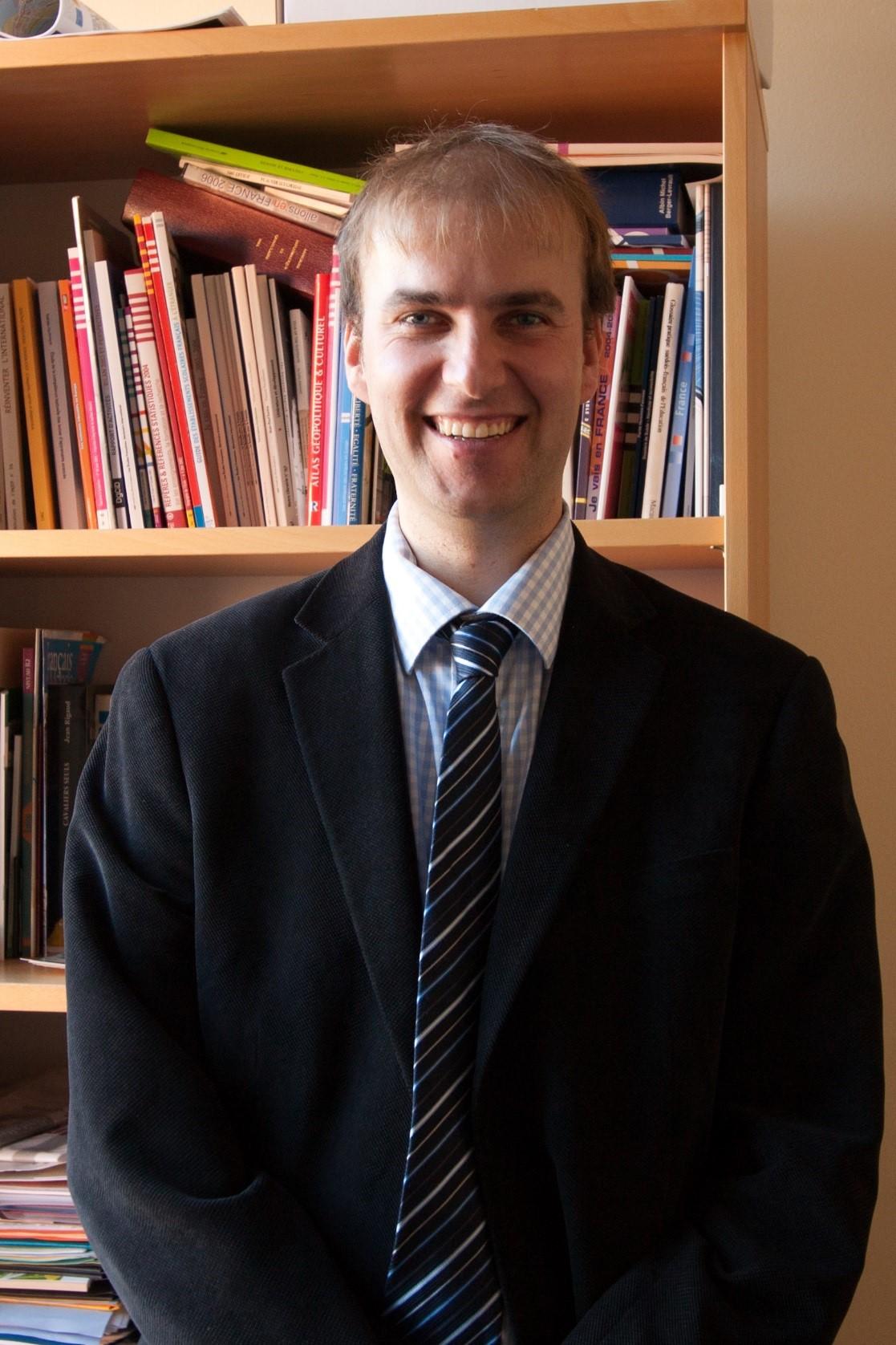
Macron one year on: strong leadership, weak democracy

One year into his presidency, French president Emmanuel Macron has abandoned his promises to make democracy stronger. Instead, he has invested all his leverage into his own leadership.
One year ago, Emanuel Macron was elected president and promised to reform the French constitution and strengthen democracy. But as we head towards the French National Day this weekend (July 14), it’s clear Macron has not proven to be a constitutional reformer.
During his presidential campaign in 2017, Macron proposed a reform of parliament aimed at making legislative power more efficient. At the time, the political climate was tense, largely due to citizens’ growing mistrust of government, as well as scandals surrounding conservative candidate François FillonExternal link.

After his victory, Macron announced his reforms to senators and MPs who attended an extraordinary Congress sessionExternal link in Versailles on July 3, 2017. Specifically, he said he would initiate a constitutional reform to cut the number of MPs and give them more scope to act.
He also declared that he would come back to Versailles each year to speak in front of the entire parliament, a step that was not so much a reform but a new habit similar to the US president’s annual State of the Union speech.
Towards a constitutional referendum
In 2018 talks began with the chairs of both the Senate and National Assembly to adjust a constitutional draft. Two questions were raised during these talks: the possible reduction of the number of MPs and the limitation of the right of amending bills.
Today, the French parliament is made up of 577 MPs and 348 senators. The constitutional reform that President Macron wants to implement could reduce these numbers to 400 and 200 respectively, a reduction that Macron says is necessary to give more power to MPs to oversee technocratic teams to help him evaluate the effects of public policies.
The other idea of the president’s campaign was to improve parliamentary work, but his plan today would actually limit the ability of parliament to get things done – by limiting their right to amend legislation. Under article 44 of the Constitution of the Fifth Republic, only MPs can amend an ordinary bill in order to introduce changes.
This text is part of #DearDemocracy, a platform on direct democracy issues, by swissinfo.ch.
Macron would like to have shorter and more efficient legislative discussions. But, along with his political force La République en marche, he knows that it will be difficult to convince other parties to back proposals that would limit their power and their number of seats.
That leaves Macron with two possibilities for achieving the reform: the first through an extraordinary Congress session in Versailles, and the second is by a referendum. For the extraordinary Congress session, he would need the agreement of three-fifths of the members of both chambers.
‘Hyperpresidentialism’
Macron’s reform would give more power both to the government and to the majority group inside parliament. In other words, the reform would deepen the tendency towards a more ‘presidential’ France.
The trend has been noticeable since the year 2000, when a constitutional referendum reduced the presidential term from seven to five years, with the goal of harmonizing the legislative and presidential agendas. In reality, however, the reform substantially reinforced presidential power as parliamentary elections happen one month after presidential elections, usually confirming its result.
The announcement of this constitutional reform thus sends a negative message to the work of parliament, while also reducing the power of the opposition. MPs from opposition groups would henceforth be incentivized to focus on the obstruction of what the majoritarian group proposes, affecting the tone and outcomes of debates.
Under the reform, the reduction of the number of MPs would be compensated by giving them a larger budget and more assistants so that they can control the law and maintain links to citizens in their constituency. The idea is to create a role similar to that of members of Congress in the United States.
On the other reforms (suppression of the taxes on wealthy families, reform of the status of railway workers, simplification of the labour code), President Macron wants to project an image of strong leadership by putting his announced economic reforms into practice.
Indeed, his aim was to break with the image of a ‘normal’ and ‘common’ president that had been offered by his predecessor François Hollande. This is why he reaffirmed a style of strong leadership, many commentators referring to a form of ‘hyperpresidentialism’.
In his last address to the Congress of Versailles held on July 9, 2018, President Macron highlighted the efficiency of his economic reforms and declared that social reforms would soon be implemented. He knows that he needs to balance his liberal policies with a better welfare model in order to avoid sparking the dissatisfaction of French citizens.

More
Bleak outlook for more democracy in France
No citizens’ empowerment
In his bid to reshuffle French political life, however, President Macron has not mentioned any reform that would empower citizens.
In the Versailles speech, he simply pointed out that French democracy should be more inclusive by granting voting rights to people with disabilities; but the field of participatory democracy still comes down to citizen consultations and local referendums (which remain rare), while nothing is said about the possibility of popular initiatives.
In 2008 a constitutional reform introduced the possibility of a “shared” popular referendum, which empowered 10% of citizens together with 5% of MPs to request a referendum on a proposed law. However, it has not once been applied in the last decade, and Macron has not offered any reform or update on direct democracy.
Several online consultations on the future of the European Union are organized, but their nature is quite vague; nobody knows if they have a real influence on political decisions. And President Macron decided to cancel the airport construction project in Notre-Dame-des-Landes that the population had supported via a local referendum in June 2016External link.
One year into his presidency, so, Macron has not proven to be a different kind of French leader, rather one – as the Italian political scientist Domenico Losurdo put it – who represents a “soft form of bonapartism”, in which the political power is concentrated in the hands of the very few.
The views expressed in this article are solely those of the author, and do not necessarily reflect the views of swissinfo.ch.

In compliance with the JTI standards
More: SWI swissinfo.ch certified by the Journalism Trust Initiative






























You can find an overview of ongoing debates with our journalists here . Please join us!
If you want to start a conversation about a topic raised in this article or want to report factual errors, email us at english@swissinfo.ch.